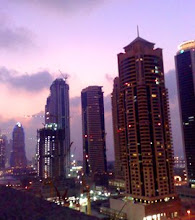 Citigroup has hammered Société Générale, saying its recently-discovered $7 billion fraud has threatened the bank’s entire credibility. The financial industry might like to imagine the French bank’s current difficulties can be kept local. They won’t.
Citigroup has hammered Société Générale, saying its recently-discovered $7 billion fraud has threatened the bank’s entire credibility. The financial industry might like to imagine the French bank’s current difficulties can be kept local. They won’t.The singular actions of Jérôme Kerviel, the French trader currently being questioned by French police, threaten to damage the reputation of the entire finance industry – from banks, to advisors to credit rating agencies - at least in consumers’ eyes. The SocGen debacle comes less than six months after Northern Rock, a British bank, failed, and within the same 12-month period that US banks realized they had botched their bet on the sub-prime market. To the man in the street, the banking industry looks like it is run by buffoons.
All stockbrokers will have to be up to speed by the middle of the year. A great idea, if it is backed up with action – and vigilance. Jérôme Kerviel, as the French police will be aware, had all the right qualifications.


















